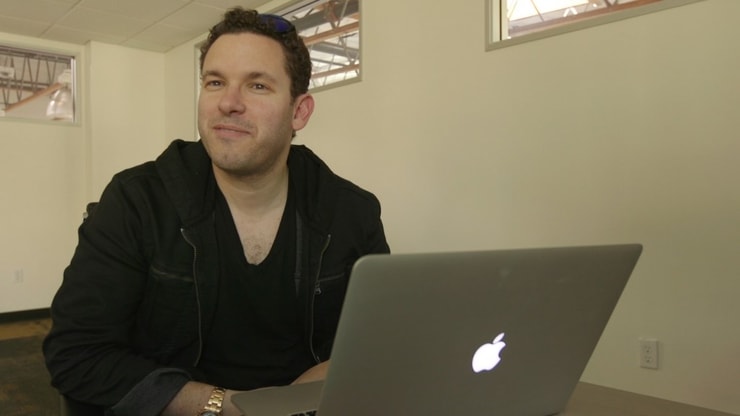To “take a bath” in business is an idiom that refers to a heavy financial loss. As painful as it may be to hear, failures and losses are inevitable in business for everyone, from the brand new trader to the longtime millionaire. No matter how established or smart you are as a businessperson, deals will fall through, trades will go bad, and things will just go wrong every now and again.
It’s never going to be possible to completely eradicate failure, so it’s time to shift your thinking. Instead of looking at failures as proof that you’re unfit for business, if you can look at failures as ultimately a gateways to overcoming obstacles and learning lessons, it is possible to turn failure into success. Here are some tips for how to do it.
1. Acknowledge the facts. The sooner you face the fact that you’ve suffered a failure, the sooner you can move forward. It can be tempting to divert blame or to pretend that nothing went wrong, but this willful ignorance won’t do you any favors.
If you’ve experienced a failure in your business dealings, acknowledge the facts of what happened. Furthermore, be brave enough to acknowledge that you had a part in it. No need to analyze just yet, but don’t deny it.
2. Damage control. Is there anything that you can do, at this moment, to minimize the damage of the failure? Can you remove remaining money from an investment, alter the business deal? Evaluate honestly if there is any specific action or actions that you can make right now that will lessen the failure. Don’t make any sudden movements or act rashly, though. Come from a cool, collected place.
3. Ask yourself what went wrong. Now that you’ve taken action if possible and acknowledged the facts, it’s time to get analytical. Pore over your records on the project and try to evaluate what it is that went wrong. Give it time. It might not be that there’s one glaring error that is the key to everything. Truthfully, when failure occurs, it’s actually the result of many small things that went wrong.
4. What will do differently next time? Take some time to consider what you would do differently next time, should you find yourself in a similar situation. Now, it can be easy to devolve into self blame and beating yourself up at this phase. That’s self indulgent and a waste of time. Keep it clinical here. Really just look at the situation and evaluate what technical aspects need to be altered to contribute to success. What has occurred can’t be changed, but you can change your conduct moving forward in the future.
5. Focus on what you learned. Call this the “silver lining” step. What did this “failure” teach you?
For instance, say you are exploring trading penny stocks, but you are still quite new. Without practice and prowess, you might have fallen for a “pump and dump” scheme, invested too much, and kept your money in for too long, resulting in a big loss.
What might you have learned in this situation?
First and foremost, you probably need to spend more time on your education. If you’re ready to get serious about your trading, it might be time to sign up for my millionaire challenge. Second, you need to research your stocks more and look for signs that it could be an overzealous stock promoter selling dust and smoke. Third, you have learned that investing too much too soon isn’t a great way to conduct yourself. These are all things that you have learned through this one failing. While it hurts now, you might find that you’ve saved yourself from years of repeating these errors over and over again.
More Breaking News
- Transocean’s Stock Action: What Lies Ahead?
- Rivian Stocks Tumble: A Buying Opportunity?
- Will Dominari Holdings’ Growth Continue?
6. Recognize what you can control. Failures will occur in business, and you’re never going to change that. But it can be powerful to recognize what you can control.
Going back to the last example, say you have that penny stock trade that went sour. You cannot control who is promoting the stock and how they are promoting it. You cannot change the fact that the penny stock market is volatile.
However, there are things that you can control. You can make sure that you are well educated on how penny stocks work. You can educate yourself on signs that a stock promoter is a fraud. Furthermore, you can control how much money you invest, and how long you keep it invested. Realizing that you do have power can help you feel confident about moving onward successfully.
7. Never make the same mistake twice. Once you’ve taken the time to evaluate what caused you to fail, make a vow to try to the best of your ability to not make the same mistakes again. There are plenty of other mistakes to be made in the future, but you’ve already made these ones. Don’t make them again.

8. Get back on the horse. You probably saw this one coming. When we fail, the instinct is to go in a cave and hide for a while. However, this will just perpetuate the victim mentality. To really rise above failure, you’ve got to get back at your business right away. Take a pause, lick your wounds, but then get back to work.
It will only become more daunting and scary the longer you wait. So if you’re a trader, go ahead and make some small trades after you’ve suffered a failure. Nothing dramatic. Just regain your confidence. You’re going to be ok.
9. Keep going. Failure and success are going to be common threads in your business. Know this, and accept it. Refer to these steps as needed, keep learning and growing, and stay at it. Let your failures inform you so that your success can define you.
Failure can be a scary thing, but it also presents a unique opportunity to become stronger. By looking at the bigger picture and being self-possessed enough to evaluate failures and see how they could provide growing experiences, you can in fact turn failure into success. It’s a massive mind shift but it will pay off in the long run for you and your business.
How have you turned failure into success?







Leave a reply